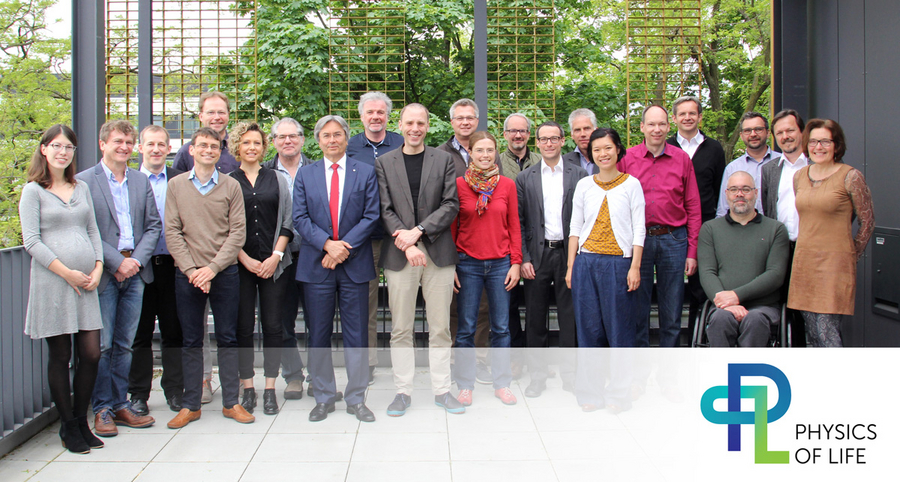
Today, the German Research Association (Deutsche Forschungsgemeinschaft) announced the new Clusters of Excellence in the framework of the Excellence Strategy of the German Federal and State Governments. The TU Dresden received three new Clusters of Excellence: Physics of Life, Center for Tactile Internet with Human-Machine Interaction (CeTI), and Complexity and Topology in Quantum Materials together with the University of Würzburg. In total, there will be 57 new Clusters in Germany. The Max Planck Institute of Molecular Cell Biology and Genetics (MPI-CBG) and the Center for Systems Biology Dresden (CSBD) are involved in one of the Dresden Clusters, the Cluster of Excellence “Physics of Life” (PoL).
PoL will concentrate on the underlying laws of physics that govern the organisation of life into molecules, cells and tissues. The cluster is a collaboration between scientists of TU Dresden and other DRESDEN-concept research institutions such as the MPI-CBG, the CSBD, the Max Planck Institute for the Physics of Complex Systems, the Leibniz Institute of Polymer Research, and the Helmholtz-Zentrum Dresden-Rossendorf.
The aim of the Excellence Strategy is to strengthen Germany’s position as an outstanding place for research in the long term and further improve its international competitiveness. It continues the development of German universities successfully begun with the Excellence Initiative by supporting research of the highest standard, enhancing research profiles, and facilitating cooperation in the research system. In this context, Clusters of Excellence (EXC) receive a project-based funding in internationally competitive fields of research at universities or university consortia.